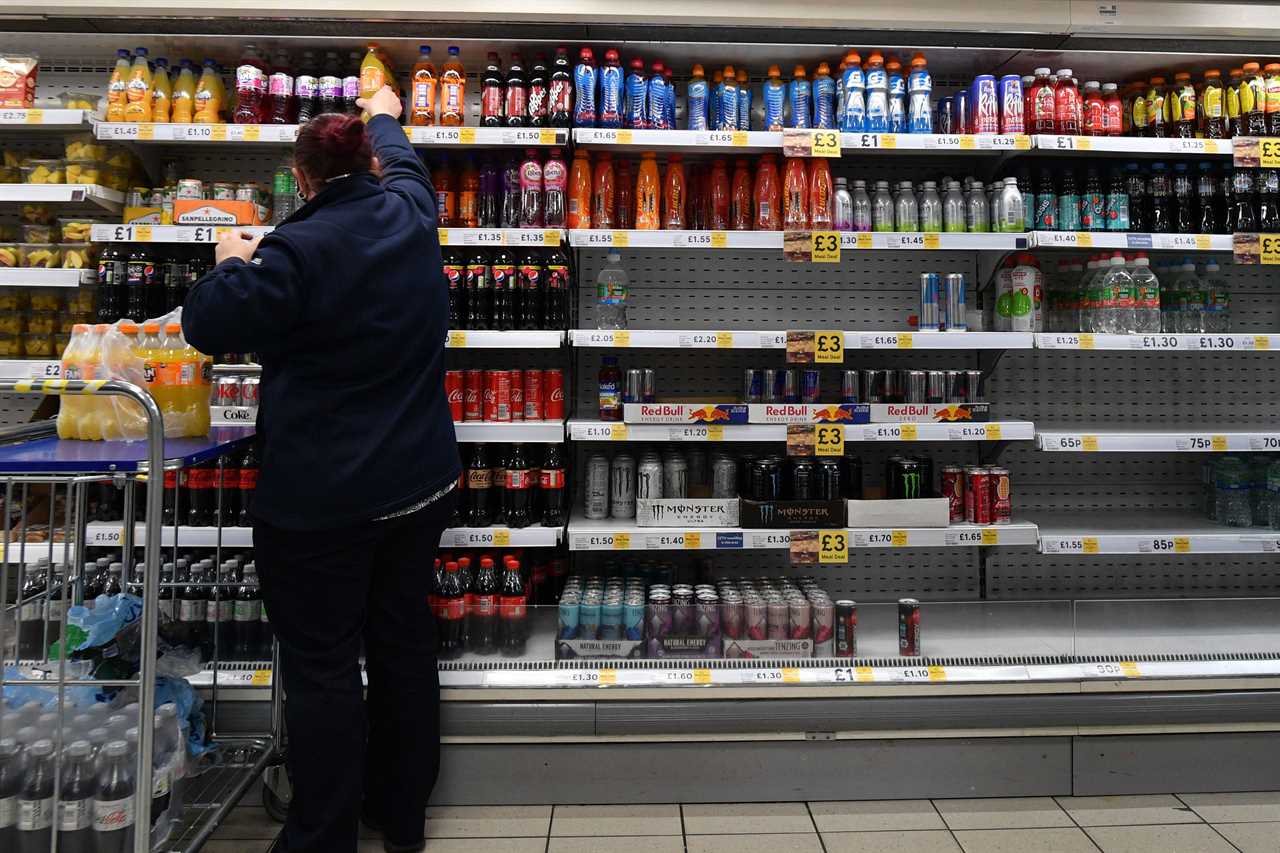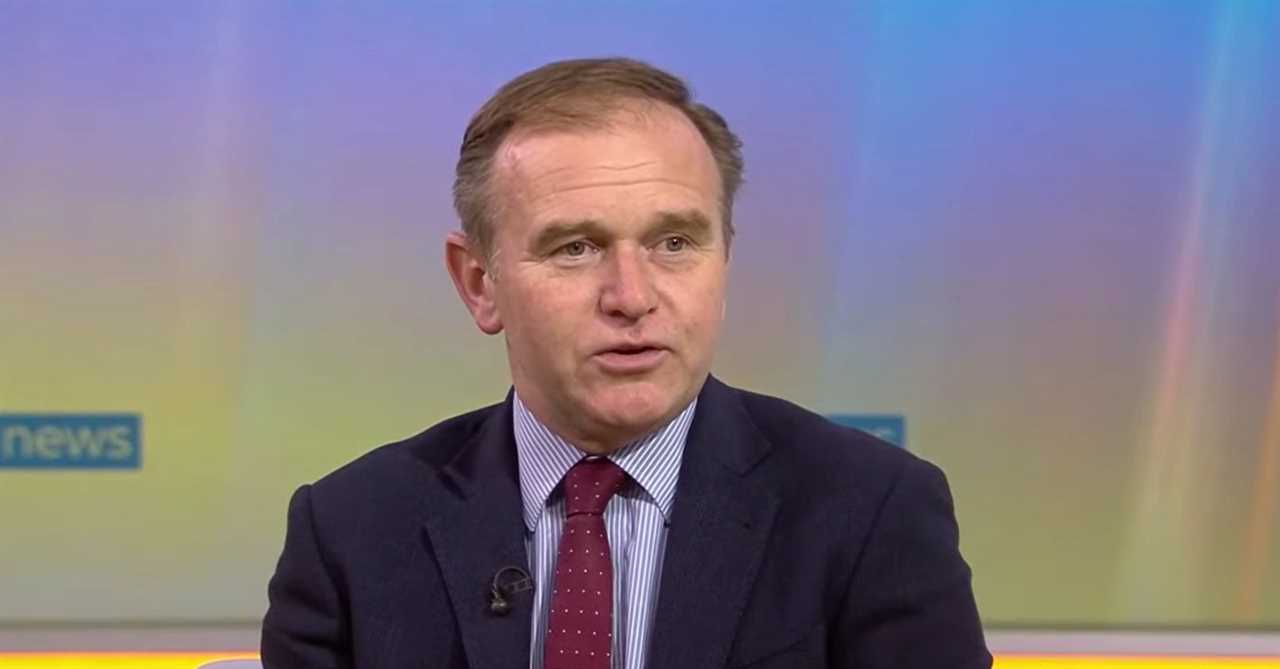NO more groups will be added to the Pingdemic self-isolation exemption list before August 16, a minister revealed today.
Staff in critical sectors – including food and water supply, medicines and public transport – can dodge 10 days quarantine if their bosses get permission from the Government.


The news was welcomed by industries facing major staff shortages, with more than 618,903 Brits ‘pinged’ by the NHS Covid-19 app in just one week.
The Government has not published a list of essential workers – like it did in the first lockdown – but has identified vital industries.
George Eustice said today that the exemption from self-isolation would not be extended to the hospitality industry.
And he made clear that no other sectors are being considered to dodge self-isolation before August 16.
The Environment Secretary told Sky News this morning: “The reason we’ve made a special exception for food is for very obvious reasons – we need to make sure that we maintain our food supply, we will never take risks with our food supply.
“When it comes to other sectors, yes, of course, the fact that they are also carrying high absence levels is causing some stress for them and making it more difficult.
EXEMPTION LIST
“You also have to bear in mind why we’re doing this and we are trying to still just dampen the pace and the velocity at which this infection is spreading because we have to keep a very close eye on those hospitalisations.”
He added: “We know that if people are double jabbed then between a 92 per cent and 96 per cent reduction in hospitalisations is what we can expect.
“But there will still be some hospitalisations and certainly still some deaths and we just need to make sure that we don’t have this growing too quickly. That’s the aim of this.
“I know it’s frustrating for everybody but we do want to try to just dampen the curve of this infection until it turns and things start to go in the other direction.
“And then of course, we can move to a different system for everyone.”
The updated guidance yesterday said “in the small number of situations where the self-isolation of close contacts would result in serious disruption to critical services, a limited number of named workers may be able to leave self-isolation under specific controls for the purpose of undertaking critical work only”.
The government’s guidance states that employers who feel their workers need to be exempt from self-isolation should contact the relevant government department for their sector.
The sectors included in the exemption are:
- energy
- civil nuclear
- digital infrastructure
- food production and supply
- waste
- water
- veterinary medicines
- essential chemicals
- essential transport
- medicine
- medical devices
- clinical consumable supplies
- emergency services
- border control
- essential defence outputs
- local government
They are also asked to provide information on the number of people who they want to leave self-isolation, the jobs they do and the impact that self-isolation would have on their business.
If a worker is deemed to meet the criteria then their employer will get a letter from the government telling them what measures they now need to follow.
Up to 10,000 workers are expected to qualify for the exemption scheme.
Separate arrangements are in place for frontline health and care staff.
In response to the announcement, the British Chambers of Commerce said many businesses “face difficult weeks ahead” despite the self-isolation exemptions.
Hannah Essex, co-executive director of the BCC, said: “While the announcement of a process which may exempt select critical workers from self-isolation in England will be a relief to some businesses, it will leave many more still facing critical staff shortages and lost revenue as the number of people being asked to isolate remains high.
“Nearly half of the businesses we surveyed this week have had staff either off sick with Covid or self-isolating in the past two weeks.
PINGDEMIC CHAOS
“Businesses want to play their part in stopping the spread of the virus while at the same time striving to revive their business after 16 months of disruption and closures.”
In his Freedom Day speech, Boris Johnson name-checked a handful of industries in line for exemption, if the workers have been double-jabbed.
They included food and water supply, power supply, medicines, public transport, border force and the armed forces.
Fully vaccinated NHS workers have already been exempt to stop hospitals coming to a standstill.
Isolation for double-jabbed Brits who are pinged or contacted by NHS Test and Trace will end on August 16.
But this week, increasing numbers of workers are being “pinged” by the NHS Covid app creating staff shortages in stores and factories producing food.
Some supermarkets last night warned the PM he has just 48 hours to fix the pingdemic or customers could face bare shelves for weeks.
Iceland said it has closed “a number of stores” after 1,000 workers – four per cent of its workforce – forced to self-isolate after being pinged.
Mr Kwarteng admitted the Government was “concerned” by photos of bare shelves in supermarkets, but said it wasn’t a “universal” problem.
He told BBC Radio 4: “Shoppers shouldn’t be panicking… I’m not panicking.”






